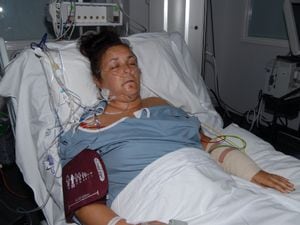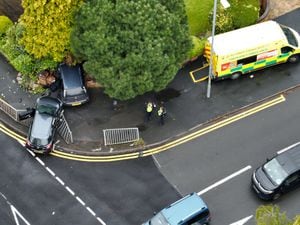Victims can come face-to-face with criminals in £1.4m justice scheme
The victims of serious crime will be given the chance to come face-to-face with the criminals who offended against them under a new £1.4 million project.

West Midlands Police has launched a restorative justice scheme, in a move Crime Commissioner David Jamieson says will help victims recover, as well as helping to change offenders’ behaviour.
It will be offered only once an offender has been convicted, and the process will be voluntary for criminals and victims.
Mr Jamieson said he decided to roll out the scheme after hearing the story of Janika Cartwright, who stabbed eight times by her former partner, Leon Harrison, while she sat in her car outside a Birmingham gym with her nine-month-old baby asleep on the back seat.
Despite one of the stabbings piercing her heart, Ms Cartwright, who was pregnant at the time in 2013, survived and took part in a restorative justice programme, meeting Harrison in prison where he is serving seven and a half years.
She said: “Being stabbed repeatedly by the man I loved was the most terrifying experience. I thought I was going to die.
“As I recovered from open heart surgery I soon realised the wounds from that afternoon weren’t just physical. They were going to have a lasting psychological impact too.
“That is why I fought to get the answers from the person who tried to kill me.

“I heard about a process called restorative justice and asked if it was something I could be involved with. I felt it would help me come to terms with what had happened.
“Eventually, I was able to go to the prison where my ex-partner was being held and meet him face to face to ask all the questions that had plagued my mind since the day he attacked me.
“I wanted to tell him the impact his actions had on me, my children, my family and my friends.
“Restorative justice gave me some closure. Without it I can’t imagine how I would have come to terms with what happened.”
Mr Jamieson, said: “Restorative justice is an initiative that is proven to reduce harm and help people put a traumatic incident behind them. It also helps prevent re-offending by ensuring those guilty of a crime see the harm caused.
“It is vital people have access to restorative justice no matter where in our region they live.”
The three-year scheme will be run by Remedi, a West Midlands based group that offers restorative justice to crime victims.
The money can’t be spent employing more police officers and has got to be used to pay for services which help victims.





